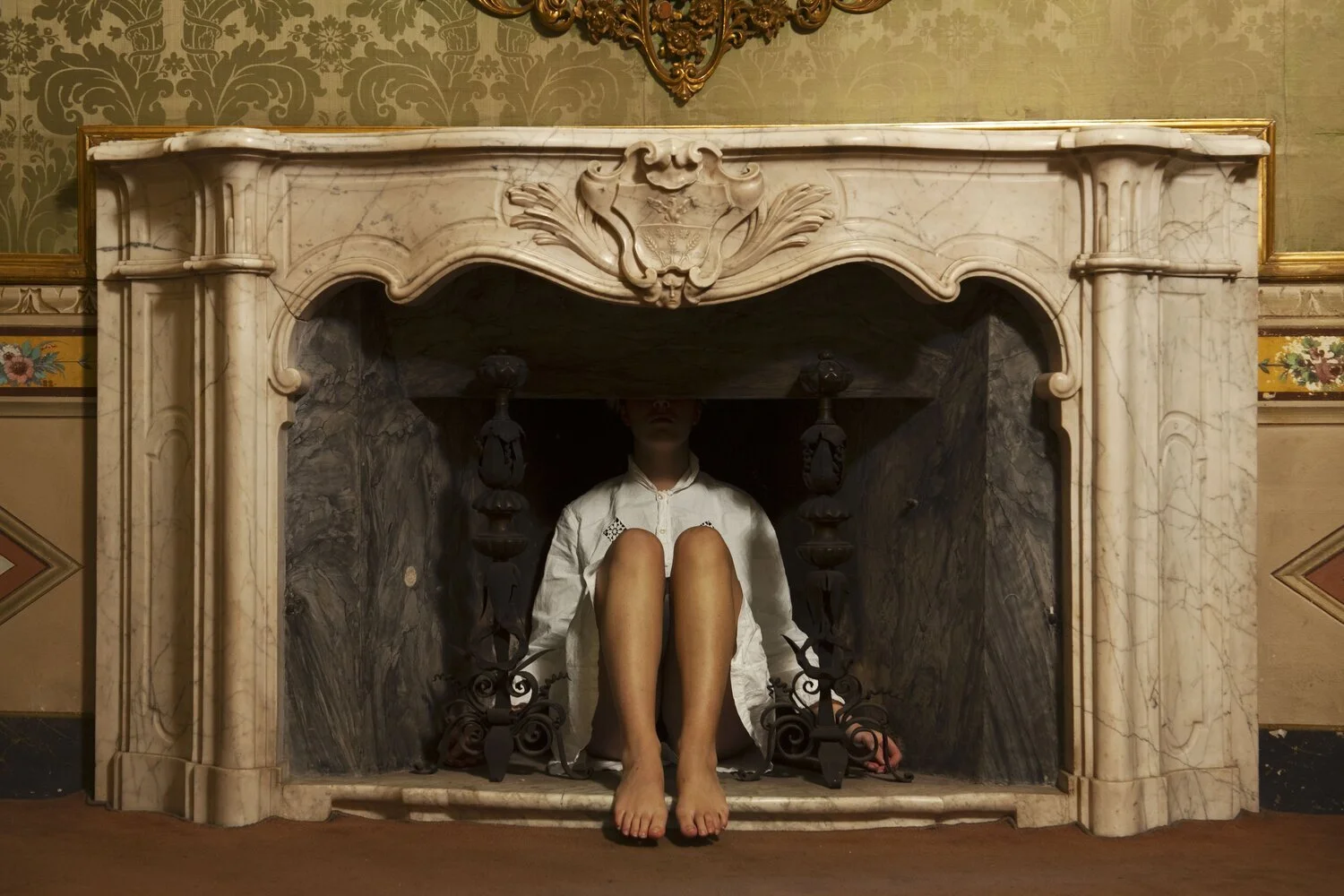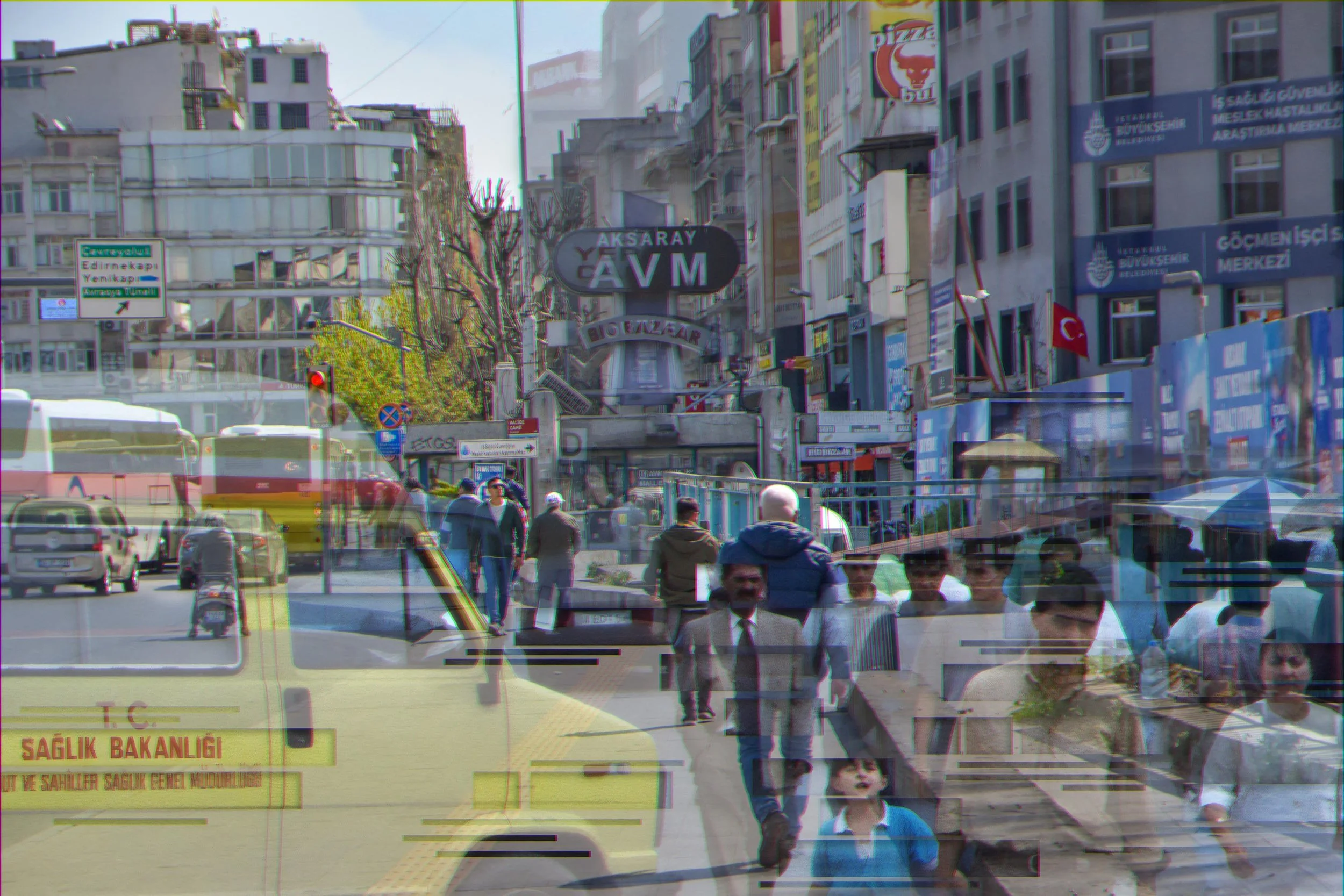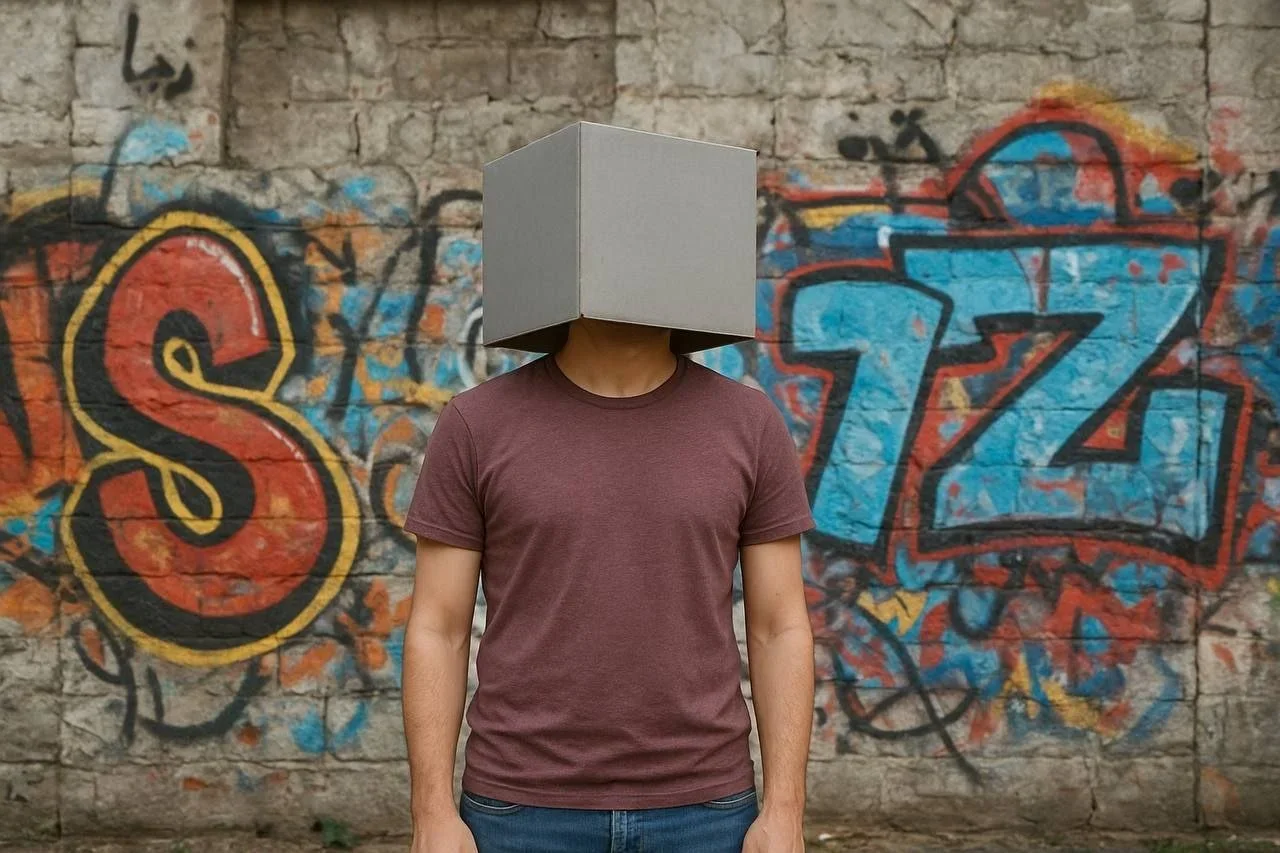10 Questions with Lucrezia Rossi
Lucrezia Rossi was born in 1992 in Lucca, Italy. After high school, she first studied photography at the Academy L.A.B.A in Florence but then moved to Berlin, Germany. There, in 2021 Lucrezia was awarded a BA In Photography from the University of Europe for Applied Sciences.
In her work, Lucrezia photographs staged self-portraits, and daily life encounters by combining humor with reality and intimacy with softness. By re-signifying her past experiences through her images, this search for meaning becomes present, honest, delicate, and light.
Lucrezia Rossi
My Traviata | PROJECT DESCRIPTION
In her series "My Traviata," the pictures show a being in white form, searching, crawling, standing in pompous, noble rooms or on stony streets - put up theatrically in the truest sense of the word, the pictures are madly alive. Although there are spatial structures and lines in the pictures, it is much less about abstraction than about an abandoned person's emotions and feelings. The escape in the confrontation with oneself takes an important place. The central question is: Where do I belong, where do I find myself, what do I leave behind to see and feel my true self? The theme of a young woman's redemption - through art in time and space, is in fact, strongly connected with a fatefulness and to the image of a lost woman who has strayed from the path of virtue. Despite the strong expression of the images and the young woman's anguished presence, she remains untouched, slightly repellent, and cool. She dies, and at the same time, lives in her own (inner) spaces.
My Traviata #4 © Lucrezia Rossi
GET YOUR LIMITED EDITION PRINT >>
INTERVIEW
First of all, how did you start experimenting with images, and how would you define your style in photography?
I would define my style as autobiographical. With softness and intimacy, I go through my personal experience, analyze and look at them from a different perspective. I can be brutal but also very emphatic; it always goes with the flow of my feelings at the time. Anyways, it is very hard for me to define my style as one. I do like to experiment a lot and with different media. In my work, I always put more focus on the process instead of the final results only. I believe in the history behind every single artwork.
In your youth, when did you realize that you were going to become an artist?
I have always been fascinated by art, especially drawings. When I was a child, I asked my parents to get me the "painter kit": canvas, easel, colors, everything. However, I wasn't good at drawing so, the perfectionist that I was and still am started to explore the different forms of art. It's then that I realized that I wanted to be involved with the creative process. I was a very introverted child, and being creative allowed me to voice whatever was going on inside me. The relief it gave me led me to realize that that was what I wanted to do. However, it would end up; it simply made me feel better.
My Traviata #7 © Lucrezia Rossi
My Traviata #9 © Lucrezia Rossi
Your series "My Traviata" is a complex photo series of staged self-portraits. How much planning goes into each artwork?
I started to shoot this project with a very solid plan which took around a month to execute. I planned to perfection every detail of what to shoot, where, and how, something I have never done for former projects. However, when I did the first shooting of the series, all that planning just drove me out of the topic. I was so focused on getting specific images that I forgot how personal the topic was. That's why for the next shootings, I decided to go to the location with an assistant, have no expectations, and start playing around with the environment. So, yes, there was big attention to detail behind each artwork, but it wasn't how this project had to develop for its aim.
What is your inspiration for this series?
To realize this project, I took inspiration from my emotional situation at the time. I was going through a time when my self-awareness was strongly damaged, and I needed to show myself who I was. The Spanish photographer Cristina Nunez inspired me for this project, especially on how to approach the topic and how to connect my inner world with the outside. She once said, "I realize if I put my despair in the picture, it would be gone"; that is what kept echoing in my head while photographing.
My Traviata #10 © Lucrezia Rossi
And what was the creative process for it? How did you choose the locations to shoot, and what did you learn from its production?
I knew since the beginning that my hometown had to be the background of this photo series. First of all because, there, is where I come from. Secondly, I knew Lucca and its surroundings could offer me beautiful environments as these were what I was looking for. I chose extremely beautiful and majestic locations to create a strong contrast with the weird and awkward poses that would emphasize the feeling of struggle. I've encountered many issues while producing this series. The restrictions because of CO-VID, the weather, and the slowness on getting permission to photograph in the palace. So, what I've learned from this project is to be constant in what we need and want to achieve. It's important to know that there is always a solution. It might just not be clearly in front of us. When we show our self-confidence, we show empowerment, making people feel safe and proud. Let you do whatever you are asking them to do. It's a cliche but also very true: don't give up!
What was the most challenging part of your project?
I think the whole project has been a challenge for me:
Because It was the first time I was putting so much effort into the production and style of the project.
Because I was opening myself up a lot, I wondered why I was doing this and why people would be interested in this topic.
As soon as I was looking at the results from the shootings, everything became clear, and I found more motivation to go on.
My Traviata #5 © Lucrezia Rossi
My Traviata #14 © Lucrezia Rossi
As a photographer, what are your main goals? What do you want the public to reflect on when seeing your works?
My main goal is the reflection on the self, a discovery of what we are by listening to our deepest inner world. I want the public to see my works as a mirror and reflect on themselves. That learning how to speak up is not a symptom of vulnerability but instead of courage and strength. Furthermore, I usually put irony in my works, which I genuinely believe helps you see the silver lining in life.
Over the last year, how did you adapt to the so-called "new normal," like online exhibitions? Do you think these changes have impacted your work, and in case, how?
Well, I am a person who still believes in human contact, so I am not very excited about online exhibitions. I think they can work for already well-known artists who don't need to present much about their works. I believe it is fundamental for upcoming artists to show their faces and be there while visitors are looking at their artworks. Sometimes we understand an artwork much more from the artist's words than a written description. Marina Abramovic made a whole performance about how powerful the artist's presence; visitors simply get more involved in the artwork, and artists probably have more chances to sell it. Yet, online exhibitions are more affordable and let artists participate in a worldwide network; this is a very important change for us. Personally, this situation did not impact my works directly. What the pandemic brought me is just a lot of fear of what the future for artists will look like.
My Traviata #8 © Lucrezia Rossi
What do you think are the biggest challenges that the future holds for photographers like you?
Well, today, everyone takes pictures. Either with a smartphone or a camera, taking a picture has become part of our daily life. Everyone today can be a good photographer if one defines the word as "someone who can take pictures." So, I guess the biggest challenge for an artist-photographer like me is not just someone good at taking pictures. But to be someone who uses photography as a medium to see things from a different point of view. Photography can realistically witness and show the changes the world is going through, and photographers must never forget how powerful that is.
And lastly, what is one goal or dream you have for this year?
I really would like to open a studio/ atelier with some of my colleagues and close friends in Berlin. I spent my last five years there, and I created a good network of contacts which in a big city like Berlin is essential to have. We would like to have our own production company and a concept space for exhibitions and artist talks. I don't know if we will be able to do it within this year as it requires time and good organization, but we will have a solid plan by the end of this year.



























